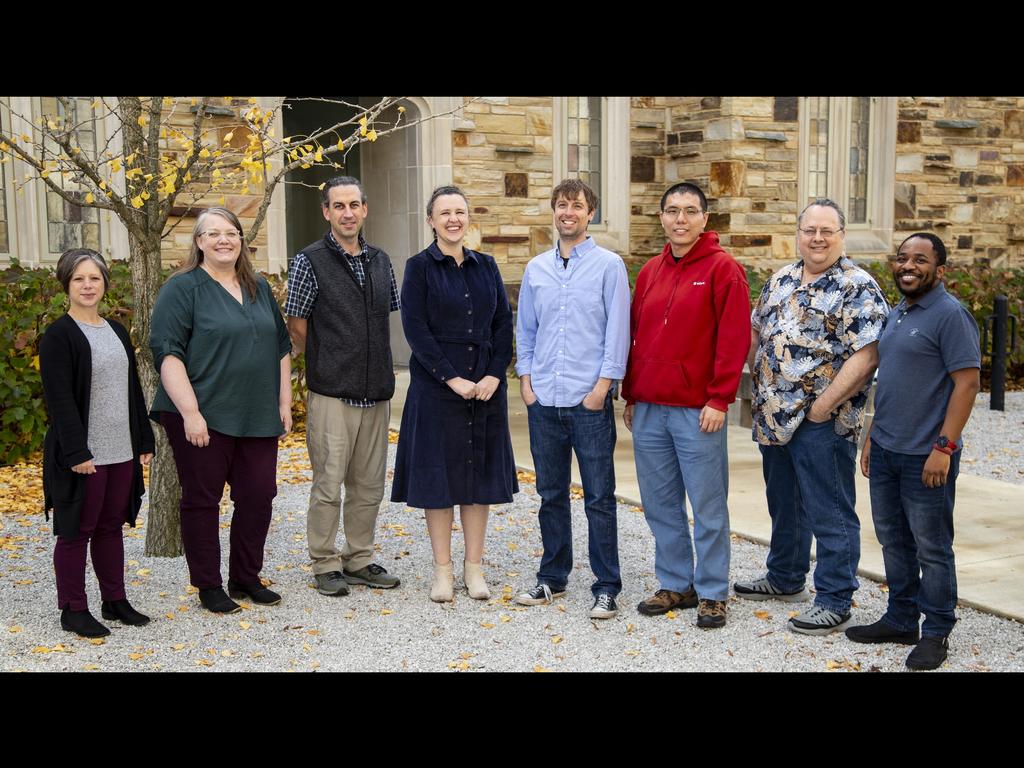Dr. Mary Miller, professor and chair of biology at Rhodes College, supported by a collaborative team of biology faculty, has been awarded a National Science Foundation (NSF) grant of more than $350,000 for a three-year project titled “MRI: Acquisition of a Fluorescence Activated Cell Sorter (FACS) Supporting Multi-Disciplinary Approaches to Exploring Biological Responses.”
This is a major research instrumentation program award from NSF for the Rhodes Department of Biology to acquire a cutting-edge fluorescence activated cell sorter. This device can precisely isolate single living cells from gigantic populations based on special properties or the presence of fluorescent labels. As cells are isolated, very detailed information can be gathered for further analysis.
Miller, who teaches topical seminars on cancer, has expertise in genetics, microbiology, and cell biology. Her research has affirmed that a variety of events important for successful cell division must be carried out in the proper order, at the proper time, and in the proper location. Errors in this process usually result in cell death, and at times trigger the accumulation of tumor-developing properties, leading eventually to cancer.
She has been a strong advocate for providing student researchers with access to the best scientific technology available and says this about the NSF award: “It will have a huge impact on both faculty and students at Rhodes. Our faculty will be able to carry out research that was not previously possible and, since this new equipment is housed here at Rhodes, we will be able to integrate its use into our courses and student research projects. We are excited to bring this cutting-edge technology to campus!”
Miller is joined on the project by seven Rhodes biology faculty—Drs. Jonathan Fitz Gerald, Elaine Frawley, Robert Laport, Gary Lindquester, Sydney Moyo, Qian Shen, and Bayly Wheeler.
This team of researchers will provide exciting opportunities for Rhodes students to study a broad range of biological questions, including those related to cells’ responses to viral infection, the immune system’s response to fungal pathogens, metal internalization by bacterial pathogens, vitamin-dependent cell cycle progression, parent of origin control of gene expression, epigenetic regulation of gene expression, speciation changes in response to changes in genome copy number, and diversity of phytoplankton in freshwater ecosystems. This work will be shared with the scientific community through presentations at national conferences and publication with undergraduate co-authors in peer-reviewed journals.
The award period for the NSF grant is Oct. 1, 2021, through Sept. 20, 2024.
